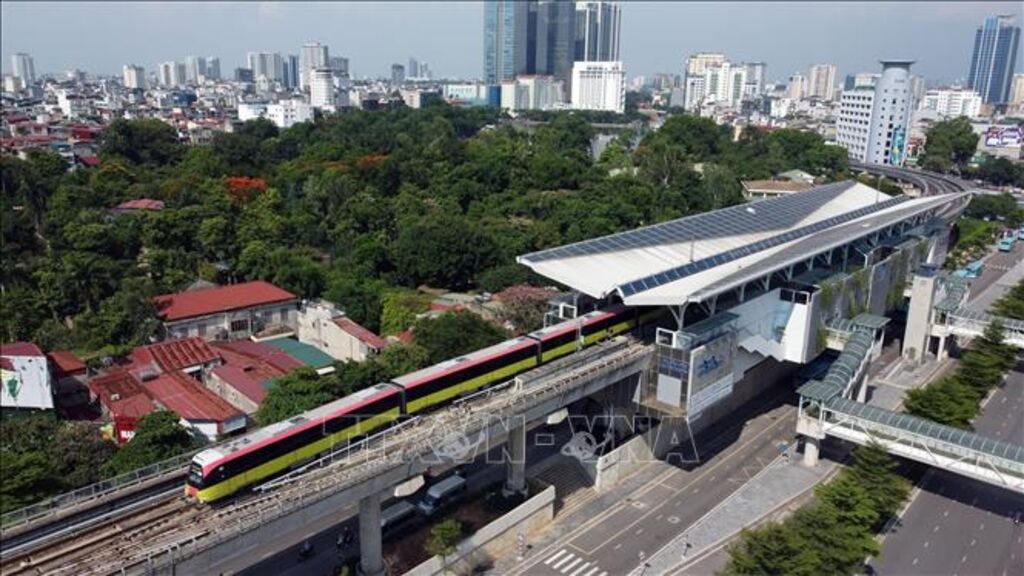 |
| The Nhon-Hanoi Station metro line passes through eight elevated and four underground stations__Photo: VNA |
The Ministry of Construction has released a draft decree to implement the Railway Law, focusing on streamlining administrative procedures and intensifying power decentralization across ministries, agencies and local authorities, with the aim of creating a more investment-friendly environment for the railway sector.
A top highlight of the draft is the removal of cumbersome procedures such as approval of level-crossing construction and licensing of hazardous goods transportation. Instead, a simplified notification and registration system would be introduced to facilitate business operation. This shift not only reduces compliance costs but also reflects a change in governance mindset which is from “control and inspection” to “framework-setting and development support.”
In addition, the draft proposes greater decentralization of powers for management of railway operations. Local authorities would be vested with more powers to decide on the opening, suspension or dismantling of railway lines and stations, thereby strengthening their autonomy and accountability.
Under the proposal, the Minister of Construction would have the authority to approve the dismantling of national railway routes, sections and stations. For local railways, this authority would rest with chairpersons of provincial-level People’s Committees. Provincial-level People’s Committees would also have full responsibility for provision of railway services for social welfare purposes, from the stage of evaluation and approval of railway schedules to provision of funding support to railway service providers.
In order to develop a more transparent and competitive railway market, the draft clarifies market entry requirements for railway infrastructure and transport enterprises, outlining their rights and obligations while introducing fare exemptions and discounts for social policy beneficiaries.
With clearer regulations on land use, operational corridors, and business frameworks, private investors would have a stronger legal foundation to participate in railway infrastructure and service projects. This would help lower national logistics costs, enhance the competitiveness of imports and exports, and reduce pressure on the road transport system.- (VLLF)









